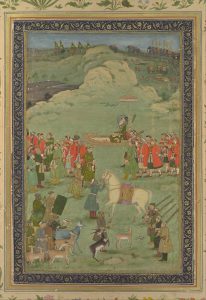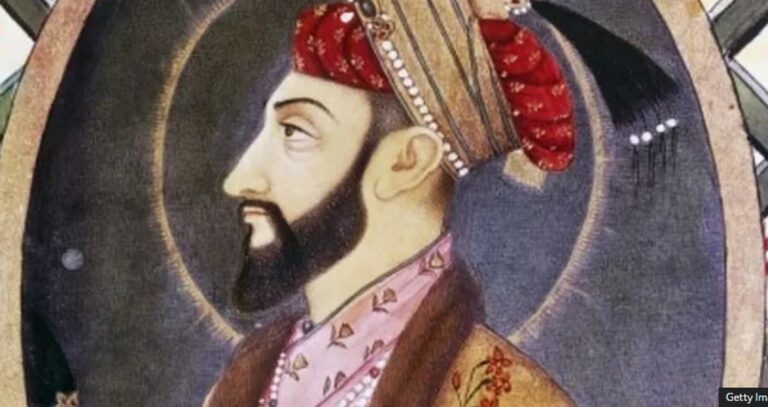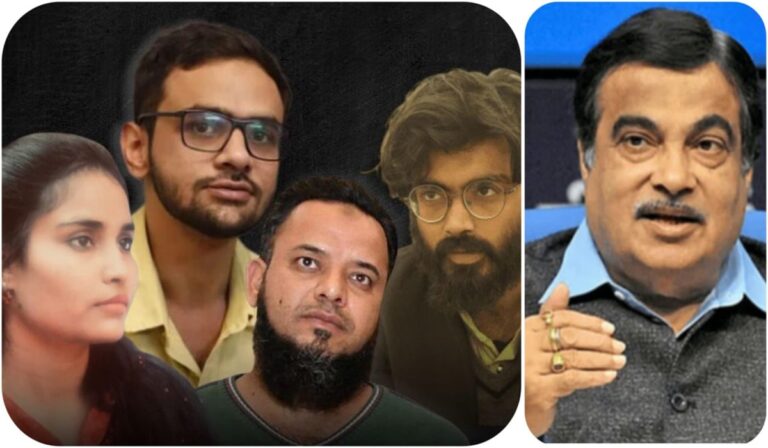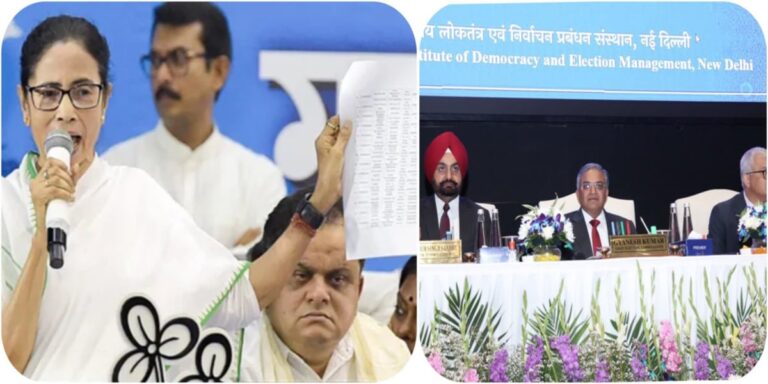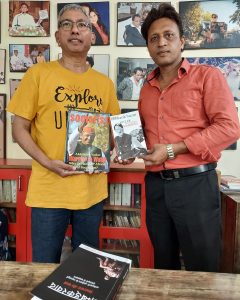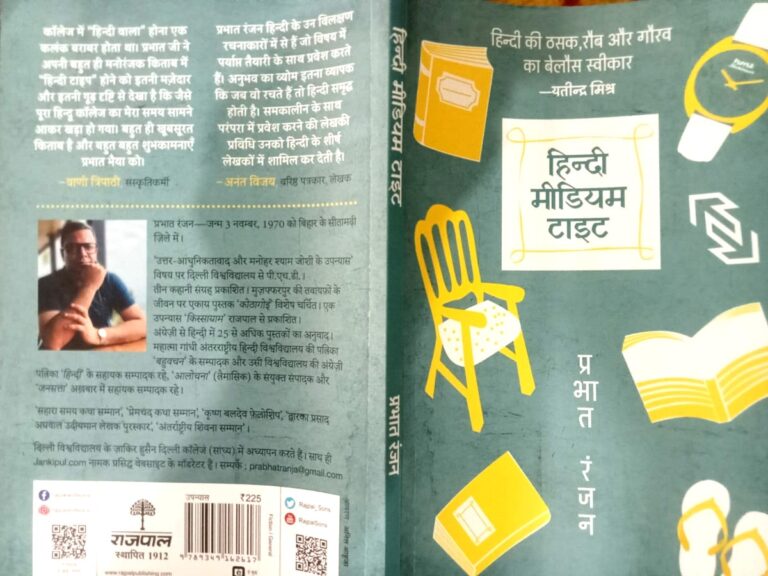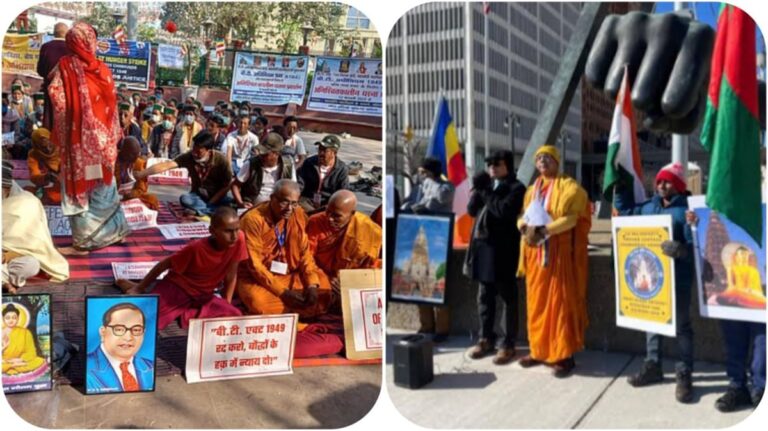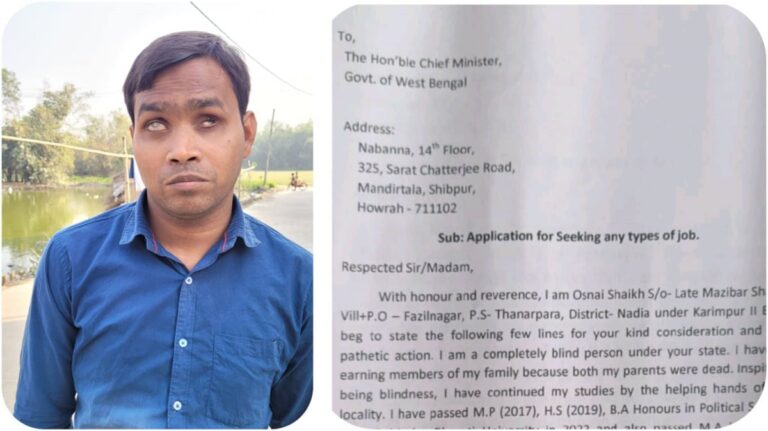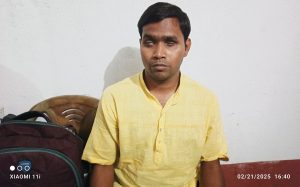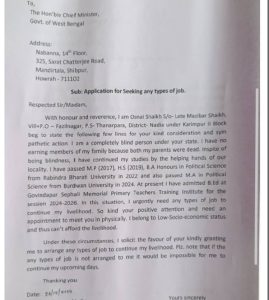[dropcap]B[/dropcap]uddhist Bhikkhus, activists and various organisations have been protesting at Bodh Gaya demanding handing over the management of the holy shrine of Mahabodhi Buddha Vihara to the Buddhists of India. It is disturbing and extremely sad that even after 75 years of our republic, the most important and sacred place for the Buddhist world has not been handed over to them. There is no doubt about the authenticity or historicity of this shrine as a Buddhist place initially developed by Emperor Asoka the Great but later restored during the Gupta Pala period and consistently followed by various Burmese kings. It is a fact that in the later years as the Buddhist patrons lost their power to the Sena dynasty of Bengal followed by the Mughal invasion, the shrines remained ignored as well as assaulted and ultimately got ruined. One of the greatest services to Buddhism in India was rendered by great British Surveyor Major General A Cunnigham as well as Indian archaeologist Dr Rajendralal Mitra and many others in the early 19th century who were responsible for the restoration of the current site and numerous other Buddhist places just buried under the rubbles of the ruins.
Nobody has ever doubted that Bodh Gaya is the biggest shrine of the Buddhist world over and many of the scholars in the past termed it a pilgrimage such as Mecca for Muslims, Badri-Kedar for Hindus and Jerusalem for Christians. Almost all the documents and research since the beginning have undoubtedly suggested that this is a Buddhist temple and the Bodhi tree is among the oldest trees in the world, even though it was destroyed and uprooted several times it was restored.
We are not going into much detail about that authenticity because unlike other religious ‘disputes’ in India, the issue of Mahabodhi Vihar as a Buddhist temple is a settled one as right from the British scholars to the British Indian administrator treated it as a Buddhist place. The British handled this issue with great care and the negotiations at that point too were not questioning the ‘ownership’ of the land as claimed by Shankar Matth. The Matth’s role was appreciated because it did not convert the shrine into a Hindu temple and Buddhists were allowed to worship there. So both the Hindus and Buddhists worshipped near the complex where Math built a Hindu temple. Here is what the Bengal District Gazetteer of Gaya, 1906 says about Bodh Gaya and Mahabodhi Vihar.
‘The temple was originally a Buddhist shrine but for a long time past, it has been in the possession of a Hindu Mahanth belonging to an order founded by the bitterest enemies of Buddhism. It has fallen into complete ruin and would have soon disappeared had not the government restored it at its own cost, in consequence, they maintain a custodian for the care of the building and to see to its repair. The Mahanth controls the worship and receives the offerings made by the Buddhists and the Hindu pilgrims. The government maintains an attitude of impartiality on all religious questions affecting the shrine. The Buddhists perform the rites of their religion at the shrine and under the Bodhi tree, just as Buddhists of different countries have done for centuries past and Hindus also make offerings under the tree as it is recognized as one of the 45 places which Hindus visit while performing the religious ceremonies for the salvation of their ancestors which centres around the holy city of Gaya. This Hindu reverence for trees is very old but by the side, there is a Hindu cult of a very recent growth, as Hindu worship, which has been pronounced a spurious and unorthodox character, is offered at the shrine itself’[1].
About the historic Bodhi tree, it says, ‘This tree is the oldest historical tree in the world and has an eventful history. It was first cut down by Asoka in his unregenerate days but after he became a believer in the law of Buddha, he lavished an inordinate devotion upon it. His queen, jealous of this attachment and grudging the jewel which Asoka offered to the tree, again had it cut down but for a second time, it was miraculously restored to life [2].
Interestingly, Gurudev Rabindranath Tagore visited Bodh Gaya in January 1922 and was overwhelmed to see this Buddhist shrine. He said, I am sure it will be admitted by all Hindus who are true to their ideals, that it is an intolerable wrong to allow the temple raised on the spot where Lord Buddha attained his enlightenment to remain under the control of a rival sect which can neither have the intimate knowledge of or sympathy for the Buddhist religion and its rites of worship. I consider it to be a sacred duty for all individuals believing in freedom and justice this great historical site to the community of people who still reverently carry on that particular current of history in their living faith’[3].
While the British Indian government was trying to handle this issue carefully, it was the heroic effort of Anagarika Dharmapala, the Buddhist monk and scholar from Sri Lanka who campaigned for its restoration and internationalized it. Though Chinese travellers and scholars like Hwen Thsang, and Faxian had already narrated about this centuries ago as well and the Burmese Kings were already involved in its restoration, it was Anagarika Dharmapala who took the issue to the United States as well as Japan. While the British scholars, excavators and archaeologists were already doing their work to maintain and restore various Buddhist sites in India. Japan was a leading world power during those days and its involvement helped as the British authorities then took it more seriously but unfortunately, they did not want to ‘hurt’ the local sentiments as there was no doubt about the historicity of the site but no local population which could fight for it. Had Dr Baba Saheb Ambedkar been active or involved in the issue at this point then things would have been different. Unfortunately, without active local support, one can not fight a big cause like this. The appropriation or occupation of the Buddhist shrines by the Brahmanical elite in India is because of the steady decline of Buddhism due to the loss of power of the Pala dynasty in the 12th century as well as the rise of the Sena dynasty particularly King Sasank, who was a staunch opponent of Buddhism. Subsequently, many stories also make mention of various Mughal rulers and their local chieftains responsible for the destruction of these historical places.
Indian National Congress and Hindu Mahasabha formed a committee with Babu Rajendra Prasad as its Convenor and passed a resolution on 21st January 1923 saying, ‘Babu Rajendra Prasad is authorized to investigate the proposal of placing the custody of Bodh Gaya temple in the Buddhist hands and to make a report to this committee. Babu Rajendra Prasad is also empowered to co-opt suitable persons in the investigations.’[4]
The Hindu Mahasabha of Bihar province too passed the following resolution on April 6th, 1925
‘Lord Buddha is one of the ten avatars of Hindus and the only deity whom the Buddhists worship. The temple of Bodh Gaya is therefore a sacred place ( teerth) for the followers of both religions. And it is a perfectly natural desire, therefore, on the part of both communities to keep this sacred place in their possession. Then in the present day both the communities resort to the place for worship and prayer. People from both communities desire that each one of them should be freely allowed to offer worship and prayer in its peculiar way, according to its customs and religious injunctions and that there should not be any obstacle in its way of doing so. This conference therefore thinks that the Buddhists of India should be offered due share in the management of the temple and the arrangement of the offering of the worship therein. This conference appoints the following committee to make a report to the Provincial Hindu Sabha within three months as to the steps that should be taken to protect the common rights of both the Hindus and the Buddhists. It also requests the Mahanth of Bodh Gaya to render all possible help to the committee and a due and proper discharge of its duties. This resolution will have nothing to do with the properties attached to the Math of Both Gaya’. [5]
Unfortunately, despite all the noises made by the committee under Babu Rajendra Prasad, it felt that the management of the shrine should be handled by a joint committee of both the Buddhists and Hindus together. There was another issue, which was important, the Hindu Mahasabha had suggested keeping the issue of the ‘ownership’ of the property outside the purview of the management.
The committee suggested based on the suggestion of Hindu Mahasabha ‘that the shrine be managed by both the Hindus and Buddhists and that the Mahanth be the ex-officio member for the ‘time being’. It also made it clear the issue of the property of Math has nothing to do with all this which means the property will remain with the Mahant. Though Mahant claims to have a firman from Shah Alam he could not produce anything to the committee. Mahadev Gir was Mahant from 1642 to 1682 and the period of Shah Alam was much later.
After independence, the Bihar government brought it under the control of special management after passing a law Bodhgaya Temple Management Act 1949. Under this act, the management of Bodh Gaya temple is de facto in the hands of Brahmins who happened to be a majority. There are four members to be appointed from the ‘Hindu community and four from the Buddhist Community. The District Magistrate is the ex officio Chairman of the committee. Activists alleged that in most of the ‘temple management committees’, in India, the Brahmins get appointed overwhelmingly everywhere and Bodh Gaya is no exception to it.
UNESCO declared Mahabodhi Vihar as a World Heritage site on 29th June 2002. Its citation says,
Criterion (i): The grand 50m high Mahabodhi Temple of the 5th-6th centuries is of immense importance, being one of the earliest temple constructions existing in the Indian sub-continent. It is one of the few representations of the architectural genius of the Indian people in constructing fully developed brick temples in that era. Criterion (ii) The Mahabodhi Temple, one of the few surviving examples of early brick structures in India, has had a significant influence on the development of architecture over the centuries.
Criterion (iii): The site of the Mahabodhi Temple provides exceptional records for the events associated with the life of Buddha and subsequent worship, particularly since Emperor Asoka built the first temple, the balustrades, and the memorial column. Criterion (iv) The present Temple is one of the earliest and most imposing structures built entirely in brick from the late Gupta period. The sculpted stone balustrades are an outstanding early example of sculptural reliefs in stone.
Criterion (vi): The Mahabodhi Temple Complex in Bodh Gaya has a direct association with the life of the Lord Buddha, being the place where He attained the supreme and perfect insight.
Now the question is when each person and party who matters in this affair do not doubt the historicity of Bodh Gaya MahaVihar then what is the obstacle to hand it over to the Buddhists which is rightfully there. As far as the Hindu Temple or the Matth is concerned, nobody beyond Bihar knows much about this so-called Hindu mandir there. Hindus have important pilgrim centres and temples. Gaya, which is 10 kilometers away from Bodh Gaya is considered to be an important Hindu place and nobody questions that. It was clear from the beginning that the Mahant claimed to have gained Zagir or Zamindari from the Mughal kings and it was his source of income apart from both the temples. We all know well how the Brahmanical lobby scuttled all efforts towards Zamindari Abolition, an issue so dear to then Prime Minister Jawahar Lal Nehru. The Zamindari Abolition Act came in 1951 and it was mostly challenged in Bihar where Brahmins, Bhumihars, Kayasthas and Rajputs had big Zamindari. People remain under the illusion that only Rajputs had Zamindari but in Bihar Bengal Zamindari was not the sole domain of Rajputs Brahmin-Bhumihar-Kayasthas had huge Zamindars in Bengal and Bihar.
It was estimated that Bodh Gaya Matth had over 18000 acres of land (many estimated it over 30,000 acres) and it was the main source of his ‘power’ which he wielded on the poor landless people, a majority of them Dalits, particularly like Mushahars, Doms, Bhuiyan and other backward communities. Jaya Prakash Narayan addressed a historic gathering of landless peasants and other political activists on April 18th, 1975. The Bodh Gaya land movement continued till 1987 when the Bihar government distributed 18,000 acres of land among 11000 landless farmers, a majority of them landless women and Dalits. Gaya, Bhojpur, Ara, and Jahanabad remained the hotbed for the movement for land rights of the landless communities, mostly mobilized by the violent left groups. One needs to understand why the religious-political nexus always opposed land reforms and found different ways to circumvent land ceiling laws by forming various religious trusts.
At the beginning of the 19th and 20th centuries, we did not have enough support for the cause of Buddhism except for those coming from outside like Japan, China, Thailand, Burma and other countries. All shades of political leaders have felt proud of India’s historical Buddhist past. Prime Minister Jawahar Lal Nehru believed in Panchsheel. Prime Minister Narendra Modi has been speaking about Lord Buddha in great reverence and participates in Buddhist festivals and events. His government claims to look to the east policy and most of our eastern neighbours are Buddhist countries and have great respect for India as it is truly the land of Buddha. There will not be a political party which will oppose handing over the greatest shrines of the Buddhist world to the Buddhist community to manage and maintain it.
Before I conclude, I wish to add this thought-provoking letter of Swami Sachchidananda Saraswati on February 1st, 1926 as appeared in the Mahabodhi journal. One may agree or disagree with many of the observations but what is important to understand is his ultimate aim.
‘It is a great shame for all Hindus that they should allow an individual Saivite Mahant to control the greatest Buddhist shrine. Is it just and right? It is a great surprise that some Hindus do not raise objections against the forcible occupation by an individual sectarian non-Buddhist Mahant of a temple erected in the memory of Lord Buddha, the only teacher of and revered by the whole Buddhists world of 500 million Buddhists. No Hindu can control any Christian or Muslim shrine by such an undesirable means. This is a great injustice to Buddha, Buddhism and one-third of the World Population which follows Buddha and Buddhism. So long as the Hindus, not to say of an individual non-Buddhist Mahant, will keep control of the greatest Buddhist temple, the whole Buddhist world will look down upon Hindus and say that there is a great injustice in India. Therefore, I pray each member of the Indian National Congress and Hindu Mahasabha should take a keen interest in the matter and do justice to Buddha and Buddhists. When the Indian National Congress demands complete swaraj from the British government which is due to the Indians Why should not the Congress do justice by giving the transfer of the Buddhist temple to the Buddhists? We find in our Hindu scriptures that India was a great fount of justice and truth but at present, I see with regret the groundless obstacles placed in the sincere and just attempt over the complete management of this greatest Buddhist shrine to its legitimate custodians. If anyone wants justice from the others the former should first deal justice with others. In the Khilafat movement days, the Hindus helped Khilafatis, in the Akali movement days they helped the Akalis, why shouldn’t the Hindus help Buddhists to regain their holiest shrine?
The question is one of pure justice. If the Hindu Mahasabha fails to do justice to the Buddhists. There is no doubt that the Buddhists will be morally affected and be far and far away from it. If it be the aim of All India Hindu Mahasabha, that all the people of different religions should give equal treatment to one another and live amicably with one another then it should give justice and equal treatment to Buddhism and Buddhists also and allow the latter to have the full management of their holiest shrine.
Therefore, let us, the Hindus, with our usual sincere and justice-loving hearts assure Buddhists of our unanimous opinion that we will give a complete transfer of Buddhist temples to them. Let us be also assured that they will allow the Hindus to worship Buddha freely as they should do to Buddha and that neither the Buddhists nor the Hindus should offer fish or meat before the Buddhist statues. I further appeal to all sincere Hindus who criticize the report and support the Buddhist’s claim for the complete management of the Buddhist temple which is justly due to the Buddhists.
Swami Sachchidananda Saraswati,
Calcutta, February 1st, 1926’[6]
A few years back when I met venerable Bhante Nagarjun Surai Sasai, a Japanese by birth but an Indian in action now and asked him about Bodh Gaya, he told me that it is the birthplace of Lord Buddha. I was surprised and shocked as to why he said that. He explained to me, that Lumbini is the birthplace of Prince Siddhartha but it is Gaya that gave birth to Buddha hence BodhGaya Mahabodhi Vihar is the most sacred shrine for Buddhists all over the world. Every Indian should be proud of this rich cultural heritage which the world acknowledges.
It is time for the government of Bihar to take a simple decision. You can call an all-party meeting and listen to their views. You can tell them the history of this movement and the archaeological findings. For a long time, Hindutva leadership asked Muslims to ‘respect’ Hindu sentiments. The Buddhists are asking the same from the Hindus. Will the Hindutva leadership, Congress as well and the Samajwadis learn a few lessons from their past and correct it as all their top leadership accepted and supported the Buddhist claim on the Maha Bodhi Vihar, Gaya? The Ambedkarite fraternity in India is already fighting for a peaceful solution through a democratic and law-abiding struggle. All the political parties and organizations that claim to represent Ambedkarite thoughts and people stand in complete solidarity with the BodhGaya Mahabodhi Vihar movement. Will the Bihar government wake up and listen to the voices and reread its history to hand over this shrine to the Buddhists? Nitish Kumar hails from JP’s movement and so does Lalu Prasad Yadav and Bihar’s landless people owe a lot to that historic Bodh Gaya Land movement which ultimately paved the way towards redistribution of the thousands of acres of land to landless people illegally occupied by the Matth. Buddhists have been wronged. Buddha and the Buddhist past are India’s glorious heritage which makes us proud. Dalits and Ambedkarites were not strong forces and Buddhism was in physical decline in India but Baba Saheb Ambedkar’s historic Deeksha ceremony on 14th October 1956 and subsequent efforts of the Ambedkarites revived Buddhism in India and today the number of Buddhists is increasing in India and abroad. Today, Buddhists in India are ready to take this battle to an end. Buddha was a man of peace and non-violence hence the longer this struggle stretches the bitter the relations between the Hindus and Buddhists. Government must ensure that such bitterness is not allowed to spread widely and it will only be possible if the shrine’s management is handed over to Buddhists of India.
[1]Bengal District Gazetteers, Gaya by L S S O’Malley, ICS, Calcutta, The Bengal Secretariate Book Depot, 1906, P 50-51
[2] ibid P-52
[3]https://www.telegraphindia.com/culture/books/rabindranath-tagore-a-poem-that-defined-the-buddha-and-sujata-stupa/cid/1818901
[4]Mahabodhi and the United Buddhist World Volume 34, January 1926 No 1, P 2,
[5] Ibid P 4
[6]Mahabodhi : March 1926 Volume XXXIV Volume III, Mahabodhi and the United Buddhist World Volume 34 P 165-166
